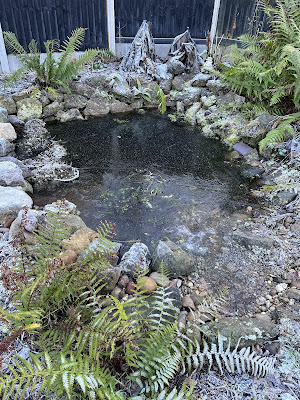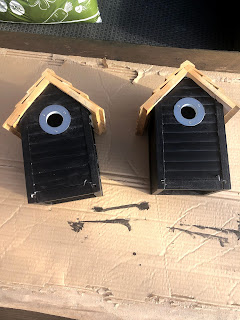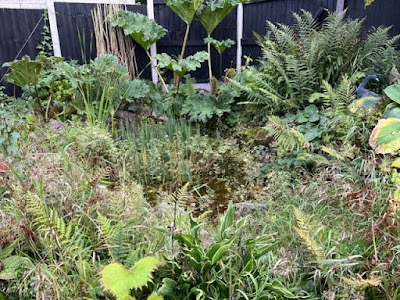How gardening has helped me remain sane(ish)
From a young age growing up in the ‘80s/‘90s I struggled with social anxiety, depression, and self-harm. I remember secondary school in all its painful detail. I avoided playtime by wandering the corridors or finding an empty classroom to sit in. I dreaded PE lessons if you can call that car-crash a learning experience. I was not really listening in class, not being educated, not having my well-being checked, not interested. I can still name all of my bullies 30 years on.
I always felt like I was on the peripheral of life looking in. Not quite connecting with people, even my family. I’ve been estranged from my parents most of my adult life as felt invisible as a child and wasn’t awarded in the same way as my high-achieving siblings.
I had always attributed my feelings of difference to being gay in a heteronormative world. I thought all gay people felt the same as me so never explored the feelings of difference further.
A friend with autism suggested I may be on the spectrum a few years ago, and as I began researching I discovered a lot of what I read fitted my own experience. But I then realised I needed that formal diagnosis for validation.
I’ve always been sensitive to sound, light, touch, and taste. I thought everyone experienced life at the same level. I was wrong and I’ve become an expert at masking my natural behaviour.
In a previous workplace where I was one of very few men, the scents of body products was really overwhelming around me, I could smell everything. The sounds of people eating was absolutely hideous, a colleague used to eat grapes like a child does loud and slurpy, it was physically painful to me. Even the word slurpy makes me cringe as I type it. The strip lights above my head could be operated independently of each other so mine was always off and I preferred sitting in the corner moving my screens so I avoided facial contact. If there was a fire-drill I would go into panic-mode, noise, crowds, standing around making small-talk outside. I eventually left due to complete burn-out, but it was a job that I loved so I regret not knowing the underlying cause.
As an adult I stopped eating meat as went off the texture of it. I light the home with ambient lights and I wear ear-plugs at night so that I can sleep. We’ve just sound-proofed the room we spend most of our relaxation time in as the noises next door were beginning to tip me over the edge. There is so much more but this is a tiny snapshot. The signs have always been there and I have been through life struggling and haven’t seen any of them.
The psychiatric practitioner was complementary that I had reached this age without a formal diagnosis. But I’ve reflected on this and I was always the invisible child at home so missed as a young person and teenager. Then in my twenties I masked my behaviour through the use of recreational drugs which made me socially confident chatty and engaging. In my thirties I stayed in an abusive relationship cycle that I finally ended when I saw the light. In my forties I started living and discovering me - an adult.
As an autistic adult I struggle to understand how others are feeling, this is especially magnified in the workplace as there are so many expectations of you. I was surprised to learn how many of us aren’t in full-time employment. I personally find that unless I’m told I’m doing a good job, I just don’t know as can’t read people, I don’t know how people are feeling or how I can relate to those feelings, or understand social norms, when a conversation is over, what do I do? I don’t understand laughter, facial expressions, is that a smile? small talk, banter - all the expectations of being ‘normal’ in a work environment are a complete mystery to me.
Making a home with my partner and gaining a garden has been of great benefit to me. Gardening is one of my specialist subjects that I completely immerse myself in to relax and escape everything I find challenging. I love collecting plants, listing them, researching them, matching them together by similar characteristics. Going on to achieve an RHS qualification is something I’ll always be proud of probably even more so than the work-based Bachelor degree I was awarded in my forties.
Gardening for wildlife provides me with a great sense of achievement, a feeling that in some small way I am benefiting the wider environment. I think all gardeners should be like this and be motivated to make the world a better place. Plastic grass really needs to be banned.
The following have helped me assimilate into the expectations that life puts on me:
Listing exactly what I am going to say in team meetings in advance so I don’t panic or go off at a tangent.
Going into a team room last so I can sit slightly separate from everyone else and avoid eye-contact.
Wearing noise-cancelling over the head earphones in the office to block out sounds (also seems to reduce catastrophising and increase my wellbeing).
Moving to a quieter room if feeling overwhelmed or working on a particular task.
Starting work early to avoid busy public transport.
Finishing 10 minutes early to avoid the crowds of everyone leaving at the same time.
Having walking conversations instead of face-to-face.
Booking non-table seat train tickets in advance in the quiet zone.
Preparing set questions when doing something social with friends.
Trying to stop apologising in my head for being me. You can’t be liked by everyone.
Finally, plants don’t talk back or have facial expressions (unless you are living your most authentic life as a Disney character).




Comments